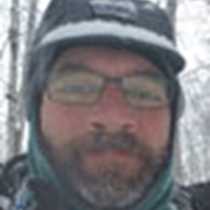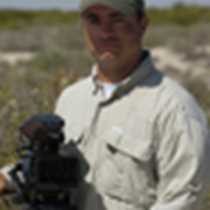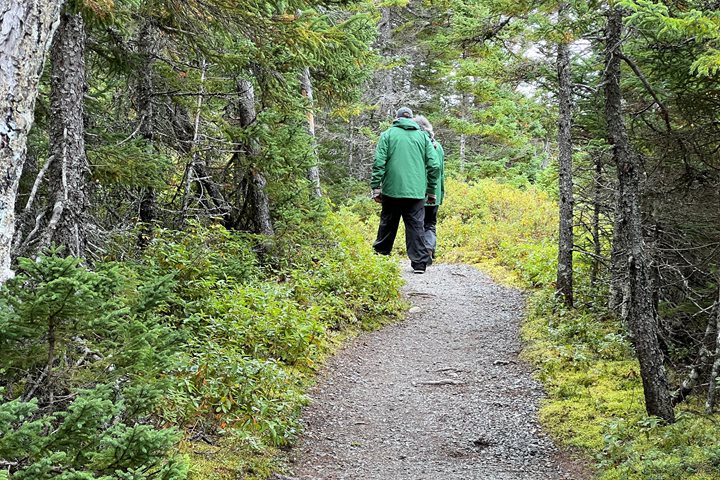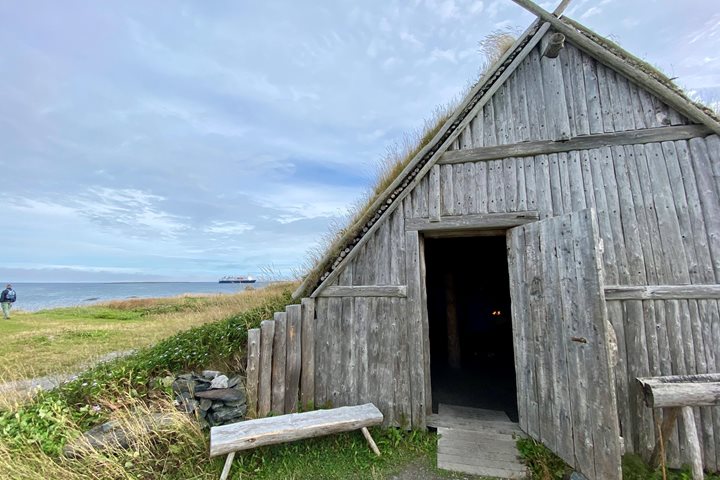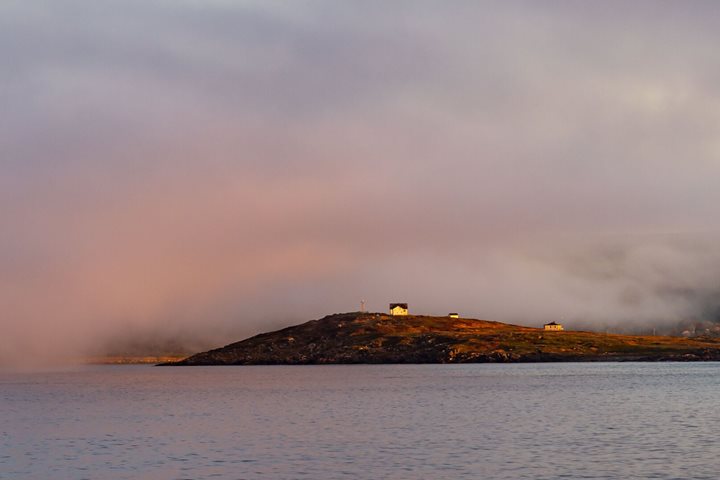The first full day of our expedition covered nearly 200 years of history ranging from battles over continental control to inventions that have shaped the very world we live in today. Alongside in the historic port of Louisbourg, it was evident that this quiet protected cut in the coast of Cape Breton, Nova Scotia, has historically held the interest of European powers. The fortress of Louisbourg, firmly at our stern, dominates the narrow passage into the bay. Later in the morning we'll be visiting the reconstructed fort and townsite.
Before setting out on our excursions here at Cape Breton we were fortunate to have a presentation from Gil Grosvenor, Chairmen Emeritus of the National Geographic Society and of more particular interest to our time here, the great grandson of Alexander Graham Bell. Bell, most noted for his invention of the telephone as well as many other significant innovations, as we would learn, had a summer residence here on Cape Breton in the village of Baddeck. Today it is still in the family and the influence of the Bell family and Grosvenor's on this community is quite evident. Not least of which is the museum and park commemorating his work and time in Baddeck.
Construction on the fortress at Louisbourg began in earnest in 1720 by French colonial forces to assert control and protect the growing commercial concerns of the fishing interests found here. By 1740 the fortress was considered one of the largest European fortifications in North America. In its current state, after painstaking reconstruction in the 1960s and 70s, it represents roughly 1/6th of the former footprint and is impressive to say the least. We learned during our visit here about what life was like as both resident and military occupant of the fort in the 18th century. The British were able to overtake the fort in 1745, taking advantage of its weak, unprotected flank along the exposed land side of the fort. Through the geopolitical turmoil of the times, both in Europe and North American, the fort changed hands from French to British and back again twice, ultimately being leveled by the last British occupation after the Seven Years War in 1758. The reconstruction and preservation of this significant site makes Louisbourg and the surrounding national park two of the most visited sites in the province and a very thoughtful reminder of the history and a great glimpse into what colonial life was like here in Nova Scotia.
The small village of Baddeck is situated on the shores of Bras d'Or Lake, the largest lake in Cape Breton, and would have gone rather unknown were it not for its deep connection with Alexander Graham Bell and his legacy here. Bell and his family first came here on a summer vacation in 1885 and he soon grew enamored with the place for it reminded him so much of his Scottish home in the highlands. He soon built an estate on the hillside across from Baddeck and called it “Beinn Bhreagh,” which in Gaelic means beautiful mountain. Over the years Bell and his family spent more and more time here in Baddeck, so much so that his will and family had insisted that all the artifacts connected with his work remain here and that a museum be built here, and only here, to harbor and share them with the world.
His noteworthiness for having developed the telephone often overshadows the remainder of this man’s incredible work and life. Probably most impressive and what occupied a great deal of his later work is the development of powered flight and the design of the hydrofoil watercraft, both of which intricately involved Bell's use of the tetrahedral structure. The first powered flight within the British Empire took place on the frozen surface of Bras d’Or Lake in 1909 when the AEA Silver Dart was airborne for several minutes. Later the HD-4 hydrofoil broke all speed records over open water, topping out at 79 mph on the very same lake.
The evening concluded on board National Geographic Explorer with a faint but nevertheless impressive showing of the northern lights, reminding us both that the North has wonders to unveil and that the dark of winter is not far off.



